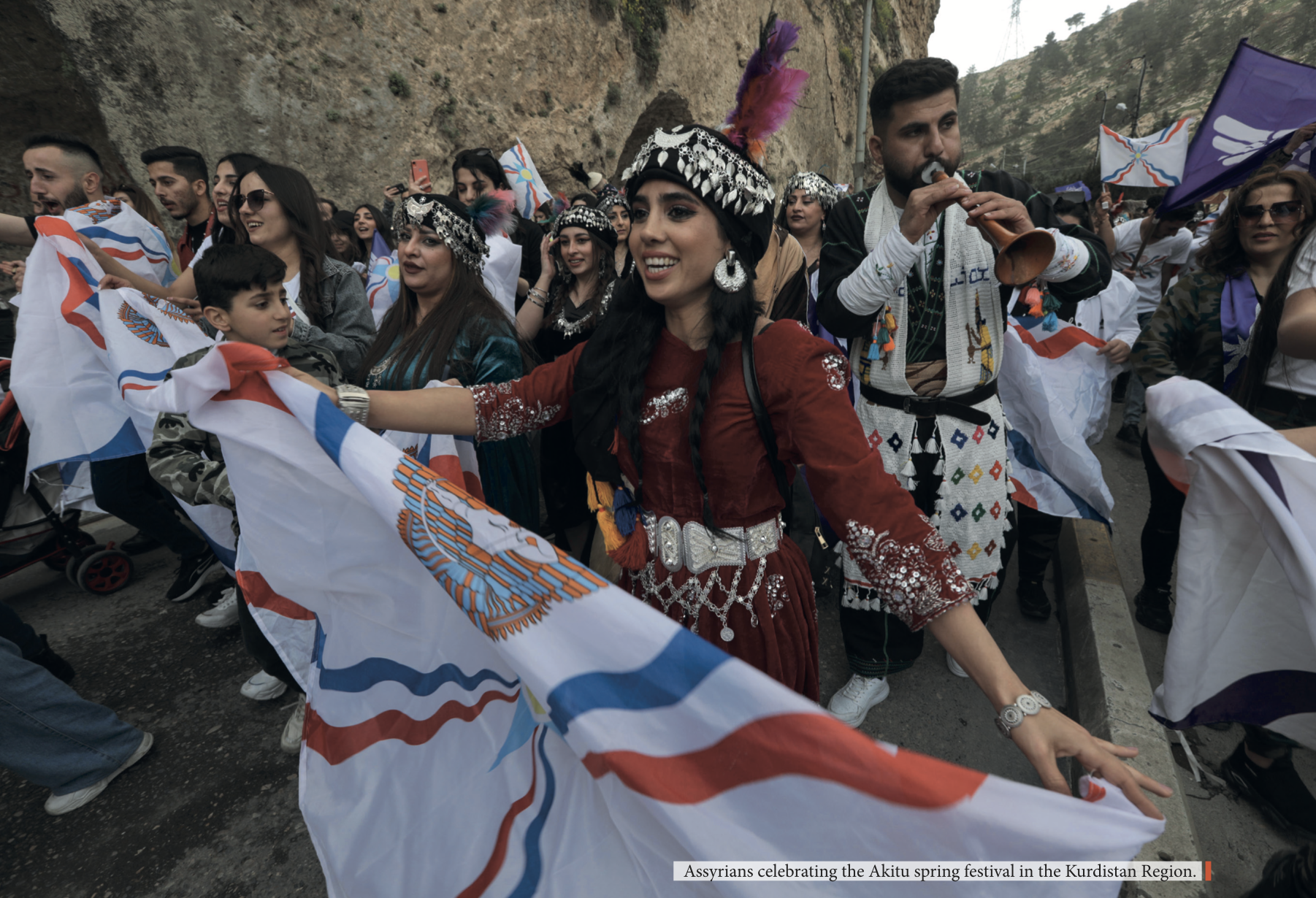In addition to its stunning mountains and landscapes, the Kurdistan Region of Iraq (KRI) has a long and beautiful history of pluralism, making it a bright spot for religious coexistence among countries that have some of the worst religious freedom in the world.
Even as Iraq’s religious and ethnic minority populations have declined as they struggled with growing sectarianism, the people of the KRI have instead sought to cultivate a flourishing society with a mosaic of religious communities including Muslims, Christians, Jews, Yazidis, Zoroastrians, Baha’is, Sabean Mandaeans, Kaka‘is, and others.
Many of the region’s most ancient communities, including the Yazidis, the Syriac-Assyrian-Chaldean Christians, the Kaka’is, and others can trace their roots in these lands back centuries and in some cases millennia. Considering the intense hardships that they have faced in recent decades, for many it is within the KRI where a remnant of these communities lies.
Protecting religious minorities
As the President of the International Religious Freedom (IRF) Secretariat and former Chair of the U.S. Commission on International Religious Freedom (USCIRF), most people my focus to be entirely on governments who are the worst violators.
Instead, it is important that we also highlight and support communities with surprisingly positive contributions – like Taiwan, Northeast Syria, and the Kurdistan Region of Iraq - so they can continue to be safe places for religious minorities and all who want to live in peace. The societies that they have created benefit all who are seeking stability in these otherwise tumultuous regions. They deserve widespread international support and honest encouragement to continue their efforts.
The area under the Kurdistan Regional Government (KRG) is in stark contrast to the countries it borders – Iran, Turkey, and Syria – especially in its support of Article 18 of the Universal Declaration of Human Rights, which states: “Everyone has the right to freedom of thought, conscience and religion; this right includes freedom to change his religion or belief, and freedom, either alone or in community with others and in public or private, to manifest his religion or belief in teaching, practice, worship and observance.”
For instance, the Baha’i community traces its history in the KRI back 170 years. While Baha’is are illegal in the rest of Iraq and terribly persecuted in neighboring Iran, the KRG has openly supported them and protected their right to gather, worship, and participate in society.
USCIRF reported that the region “continued to be a crucial safe destination for Iraqis displaced from elsewhere in the country, and the KRG’s extension of greater municipal representation for religious and ethnic components is commendable.” It also applauded KRG Prime Minister Masrour Barzani’s October 2021 declaration to make Ankawa, a Christian area in Erbil, a district allowing largely Syriac-Assyrian-Chaldean residents the ability to oversee their local affairs.

Concrete actions
When ISIS swept through Iraq and Syria in 2014, the KRI was able to protect its borders while generously accepting over 2 million refugees and internally displaced persons (IDPs) fleeing both the Syrian Civil War and the ISIS’s genocidal campaign primarily targeting Yazidis, Syriac-Assyrian-Chaldean Christians, Shia’s, and other religious and ethnic minorities with horrific atrocities.
The massive influx of people desperate for safety boosted the KRI’s population by one-third and was a heavy burden economically. Even now, the region continues to host approximately one million refugees and IDPs, including over 360,000 still living in camps eight years after fleeing ISIS.
With the United Nations set to pull out of Iraq to focus on Ukraine and other newer war-torn areas, the KRG will need the support of the international community. Only then can we ensure that Yazidis, Syriac-Assyrian-Chaldeans, and others still displaced can fully recover from the genocide and either return to their homes or resettling in the KRI or abroad if returning is not a safe or viable option.
Fortunately, I have been able to visit the KRI frequently over the years and have developed great friendships with those from various religious and ethnic communities. I understand the difficulties that can arise in this complicated region and appreciate the open door to government officials to share and dialogue about potential solutions. It is vital that the needs and concerns of these communities continue to be shared honestly and that concrete actions are taken by both government and civil society actors to address these concerns.
In February, I had the honor of moderating a Religious Freedom Roundtable at the Erbil Forum 2023 co-hosted by the IRF Secretariat, Rudaw Research, and the Seed Foundation. It was encouraging to see Muslim leaders from both the Sunni and Shia tradition, as well as Yazidi, Syriac, Assyrian, and Chaldean Christian leaders, as well as others, engage in robust dialogue about issues of common concern.
The KRG has been proactive in seeking to develop religious literacy, expand education, and nurture multi-faith dialogue to bolster their pluralistic society. Civil society organizations play a vital role in advancing the rights of all their diverse communities, including through a regular IRF roundtable, and in connecting to the global network of roundtables and other national and international partners.
As religious freedom continues to deteriorate around the world and geopolitical trends change, it has never been more important for international partners to support the KRG so that it can remain a refuge for religious and ethnic minorities and all who seek peace and security.
Nadine Maenza is the President of the International Religious Freedom (IRF) Secretariat and former Chair of the United State Commission on International Religious Freedom (USCIRF). She is also a Global Fellow at The Wilson Center.

